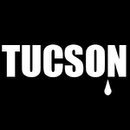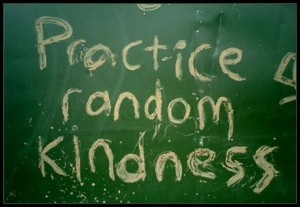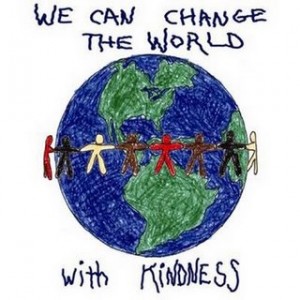A sermon preached on 2 Epiphany, Martin Luther King weekend, at St. Stephen’s Episcopal Church, Heathsville, Va.:
“Look, here is the Lamb of God.”
John the Baptist, the last of the Old Testament prophets, who has been preaching and teaching, calling the world to repent, to turn back to God … John, who baptized Jesus in the River Jordan and saw the Spirit descend like a dove … John the Baptist now boldly proclaims exactly who Jesus is, and exactly what Jesus is: The Lamb of God, the Son of God
This is John’s Epiphany proclamation, celebrating what Diana Butler Bass calls “God made manifest to the whole world.”[1]
 And it was because John made this statement – not once, but twice, because sometimes, we all know, once is not enough – that Andrew and another of John’s disciples went off to spend time with Jesus, so that they, too, could see God made manifest in this world.
And it was because John made this statement – not once, but twice, because sometimes, we all know, once is not enough – that Andrew and another of John’s disciples went off to spend time with Jesus, so that they, too, could see God made manifest in this world.
But first, Andrew, being Andrew — you know, the disciple who never quite understands what he is supposed to do, so he specializes in bringing others to Jesus? – first Andrew went to his brother Simon and made the same bold proclamation that John had made:
“We have found the Messiah.”
John had an epiphany – an aha! moment – and he boldly proclaimed that epiphany to the world.
The Spirit pointed him to Jesus, and he in turn pointed others to Jesus.
Andrew had an epiphany – an aha! moment – and he boldly proclaimed that epiphany to his brother.
The Spirit, through John, pointed Andrew to Jesus, and he in turn pointed Simon to Jesus.
That’s what Epiphany – the season of Epiphany – is all about, my friends.
God made manifest in the world is pointed out to us, and in turn, we point out God to others.
First we are told – and then we tell others – that, as Ms. Butler Bass says, “God (is) no longer a distant God or only the God of the ancient Israelites – but that God is, indeed, visible to all who open their eyes.”[2]
How have our eyes been opened?
And how are we opening the eyes of others?
• • •
Last Friday, I listened to a segment on NPR that focused on the Rev. Dr. Martin Luther King Jr., whose birthday we celebrate this weekend. The discussion centered on Dr. King’s “I Have a Dream” speech of August 28, 1963, delivered at the Lincoln Memorial in Washington, D.C. That speech, according to civil rights leader Julian Bond, was an eye-opener – it was an epiphany — for many Americans at that time, because, Mr. Bond said, it answered the question of why a civil rights movement was needed.
 For many of us now, that question may seem like a no-brainer: Of course the civil rights movement was necessary. In 1963, people of color were still treated as only five-eighths human in many parts of this country! But, as Mr. Bond pointed out, most people in this country at that time were unaware of just how bad life was for people of color. Dr. King’s speech, he said, was an epiphany for those who were listening, because for many of them, it was the first time they heard the truth spoken, the first time they learned that this nation needed fixing.
For many of us now, that question may seem like a no-brainer: Of course the civil rights movement was necessary. In 1963, people of color were still treated as only five-eighths human in many parts of this country! But, as Mr. Bond pointed out, most people in this country at that time were unaware of just how bad life was for people of color. Dr. King’s speech, he said, was an epiphany for those who were listening, because for many of them, it was the first time they heard the truth spoken, the first time they learned that this nation needed fixing.
You know that what Mr. Bond says is true. You lived through those years. You remember what it was like. And after Dr. King’s speech, which opened your eyes along with the eyes of many others, your generation responded. I know this, because you have told me it. My generation says thank you. Thank you for hearing and responding to Dr. King’s truth.
Speaking the truth – boldly, provocatively declaring that truth for all to hear … this is our call in the world today.
Just as John had to point out to his own disciples that the Messiah of whom they dreamed was already in their midst …
Just as Dr. King had to point out to his own countrymen that there were still dreams to be accomplished in this land …
… So we are called to point out to this broken world that God’s dreams can still be accomplished in this world.
This is our call in the world today: To make God manifest to all whom we encounter, to all who have ears to hear and eyes to see.
We are the ones who, like Andrew, are to call others to God, to show God to everyone, by our words and by our deeds.
Boldly and provocatively.
In all that we do and all that we say.
And right now, my friends, the world especially needs us.
Because right now, my friends, the world needs to see the light – it needs to bathe in the light that is God made manifest.
We all know about the tragic events that took place in Tucson eight days ago. We all know about the six people who were killed and the 14 others who were wounded.
And unless we’ve had our heads completely buried in the sand, we all know that within hours of the shootings, a vitriolic debate broke out in this country as to who was responsible, as to who and what caused a mentally ill young man to lose touch with reality – to lose touch with God’s reality of love – and to do great physical harm to innocent people standing outside a grocery store, and great psychological damage to the world.
Fingers were pointed, and blame was assessed.
Most of that blame centered on the tone of our public debate, and how it has become so caustic, so pain-filled, so damaging to our souls.
But that is not what lies behind the attack. The shooter himself is a mentally ill young man, suffering from his own delusions and in serious need of help.
What makes these tragic events an epiphany moment for us is that our eyes and our ears have been opened to the fact that somehow, somewhere, we have lost the ability to proclaim love in this country.
To know this is true, all you have to do is turn on your radio and listen to the screaming matches that masquerade as “talk shows.” Or switch on your TV and watch as people denigrate and attack each other, all in the name of “commentary.” Or, if you’re brave enough – which I am not, I must tell you – you can look at Twitter. But be forewarned: If you do so, you will need to bathe afterward, because Twitter is filled with filth.
Or take a look at Facebook: Just last week, on one of those days when 49 of the 50 states had snow in them, a woman on facebook proclaimed that she wanted to “castrate” public school officials for canceling school before a single snowflake had fallen. She wanted to castrate someone because he had inconvenienced her!? I have to tell you, my first thoughts were, Do you even know what you are saying? Do you know how to do this? Have you ever done this?!?!?
The tragedy in Tucson is our epiphany, our great Aha! moment, showing us that all of us – all of us – have participated in some way in harming each other’s souls with damaging, derisive, deragatory words.
Oh, we may not have said anything awful … I pray that not one of us here has ever said anything awful. … But … I also know we all drive on the roads around here! And we all sometimes say things that damage not only our souls, but the souls of others.
Even when we refrain from saying bad things, from making damaging comments, we still have allowed others to say those things – and to get away with them.
We haven’t stood up against the evil that all this represents. We haven’t called out those who spew hatred, we haven’t tried to turn those people to love.
But now, because of those shootings in Tucson, many of us are re-examining our lives, we are re-examining God’s call to us in our lives, and we are saying, “Enough! Basta! No more! This is not what God calls us to say or do!”
We have had our Epiphany.
Jesus has been pointed out to us again – because sometimes, you know, once really is not enough.
And now we are called to point out Jesus to others.
It is time for us to do as John the Baptist did, to proclaim, boldly and provocatively: “Look, here is the Lamb of God!”
We are the ones who are called to go out into the world – again and again – and proclaim, by word and deed, that the Lamb of God is in our midst.
We are the ones who are to proclaim God made manifest not just in our midst, but in the midst of all the world.
It’s time for us to make proclamations!
Bold ones!
Provocative ones!
We have to be like John the Baptist.
We have to be like Dr. King.
If we want to change the tenor of the debate in this country – and by God, we should want to do that – then we have to be the ones who do it! With our own lips first. With our own lives first.
But we can’t stop there.
We have to call others on their comments, when their comments go too far, when their statements serve only to divide and denigrate.
Whenever our souls are damaged, you had better believe the souls of others are being damaged as well.
And it is up to us to keep that from happening.
The love of God has been manifest in our lives.
How are we making God’s love manifest in the lives of others?
How are we proclaiming, boldly and provocatively, “Look, here is the Lamb of God!”?
Amen.
[1] Diana Butler Bass, “Gabby opened her eyes, may we also open ours,” http://blog.beliefnet.com/christianityfortherestofus/2011/01/gabby-opened-her-eyes-may-we-also.html#ixzz1B1prID7o, 14 January 2011
[2] Ibid.








